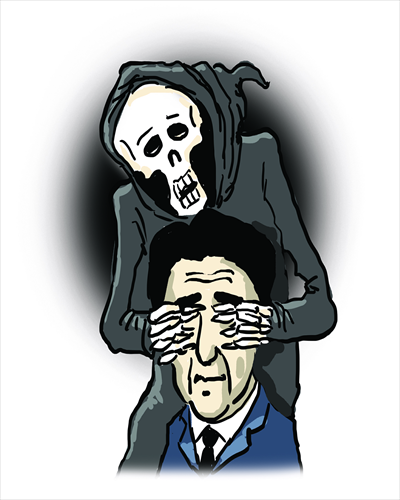 The 4th Chinese National Pole Dance Championship held in Tianjin
The 4th Chinese National Pole Dance Championship held in Tianjin
 Chinese navy commandos debut at 2014 RIMPAC
Chinese navy commandos debut at 2014 RIMPAC
 Guangxi impression: scenic countryside
Guangxi impression: scenic countryside
 World's largest aquatic insect found in Sichuan
World's largest aquatic insect found in Sichuan
 Ceremony volunteers for Youth Olympics make public appearance
Ceremony volunteers for Youth Olympics make public appearance
 A glimpse of female crew of Liaoning aircraft carrier
A glimpse of female crew of Liaoning aircraft carrier
 Stills from "Dad, where are we going?"
Stills from "Dad, where are we going?"
 Legless man's happy life
Legless man's happy life
 Top ten most beautiful islands in China
Top ten most beautiful islands in China
 Aerial view of Hong Kong
Aerial view of Hong Kong
 |
| (Illustration: Liu Rui/GT) |
In July 1894, Japanese troops, without a formal declaration of war, sank the vessels of the Chinese military, which were actually rented British merchant ships.
Imperial Japan won the war, and forced the Qing government to sign the Treaty of Shimonoseki that included an indemnity of 200 million taels of silver to Japan.
The imperialist nation used 60 percent of the amount to develop military strength and in particular maritime power. A decade later, Japan beat Russia on Chinese territory.
Like many imperialist powers at the beginning of the 20th century, Japan was immersed in an optimism brought by victory, which drove the whole country into a crazy war machine. Wars not only yielded wealth but also glory as a great world power.
Japan won the First Sino-Japanese War (1894-95), but found only defeat in WWII.
The bloody history of human beings in the 20th century has demonstrated that a country is doomed to fail if it wallows in military buildup. Defense, development and diplomacy as means of statecraft should be utilized in a balanced way to safeguard national security. This is a necessity to enduring peace in the 21st century.
Back to 2001, the Taliban regime was toppled by just a few thousands of US soldiers, but now Afghanistan is facing the risk of Taliban forces staging a comeback.
In 2003, the US troops took Baghdad and overturned the regime of then Iraqi leader Saddam Hussein within three weeks.
However, it is much more difficult to start a war than to end a war. The Iraq War not only mired the US in imperial overstretch, but also cost the lives of hundreds of thousands of innocent civilians.
Now Afghanistan, Iraq and the Middle East at large are being tormented by religious extremism. But today Washington has chosen to withdraw its troops.
The Abe administration should learn lessons from the US and recognize the fact that it will eventually pay the price for the militarization of diplomacy.
Tokyo should stop relying merely on growing military power to ensure its national security. The Abe administration's misrepresentation of historic issues also harms Japan's image in neighboring countries.
Many South Koreans view Japan as the second largest threat, after North Korea.
The hostility between Japan and South Korea illustrates that Seoul is highly vigilant against the formerly belligerent Japan.
Victor Cha, former director for Asian Affairs in the White House's National Security Council, has said repeatedly that the US fails to properly understand the relevance of historical issues to international relations in East Asia.
Despite as many as 58 percent of the Japanese public disapproving of the move, Prime Minister Shinzo Abe still sticks to dismantle the pacifist constitution, which was a strong asset for Tokyo in restoring its international reputation after WWII.
In addition, the Abe administration is also set to help strengthen foreign military forces with the widely commended Official Development Assistance. The money should have been used for boosting development and increasing social capital.
History has proved many times that war is not a continuation of politics, but actually a consequence of political failure.
China needs to safeguard its interests as well as peace. Many Japanese people offered assistance to China to fight against Japan militarists during wartime. China needs to realize that there is not just Abe's voice in present Japan, but that peace-loving Japanese people are striving to impede Abe from leading the whole nation astray.
 Zhujiang ambassadors attend lotus lanterns activity
Zhujiang ambassadors attend lotus lanterns activity
 From girly girl to tough special police officer
From girly girl to tough special police officer
 Children attend gymnastics training in summer
Children attend gymnastics training in summer
 Beautiful sceneries along the special travel route in Xinjiang
Beautiful sceneries along the special travel route in Xinjiang
 Focus on 1st female patrol team in Turpan
Focus on 1st female patrol team in Turpan
 Collection of 'China Dream' public-spirited ads
Collection of 'China Dream' public-spirited ads  National fitness team members integrate traditional and modern beauty
National fitness team members integrate traditional and modern beauty Moms on their kid’s coming out
Moms on their kid’s coming out Chinese fighters through lens
Chinese fighters through lens
 48 hours after super Typhoon Rammasun
48 hours after super Typhoon Rammasun Bikini show held at water park in Xi'an
Bikini show held at water park in Xi'an
 Lobster vs cat: catch me if you can
Lobster vs cat: catch me if you can  Heat waves sweep China
Heat waves sweep China  Top 10 most beautiful islands in China
Top 10 most beautiful islands in China
 Zhou Xun announces engagement to Archie Gao
Zhou Xun announces engagement to Archie Gao
Day|Week|Month